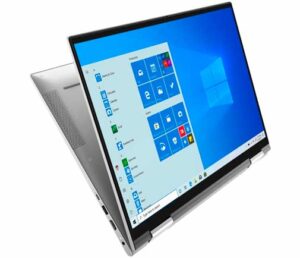Laptop computers can be an indispensable asset in terms of work, school and travel. But there are certain steps you should take in order to protect the machine from unnecessary stress or problems.
Before transporting your laptop, always lift by its base and ensure that it is off. Also make sure that any files not used regularly have been deleted.
1. Don’t Leave Your Laptop in the Car
Laptops are far more delicate than you might realize and extreme temperatures can wreak havoc with internal components. Heat damage is particularly detrimental, and even short periods in hot cars can result in permanent damage to laptops.
As with anything electronic, laptops should always be kept in a cool environment away from direct sunlight, but if necessary, keep them in your car turned off with plenty of air circulation – ideally the trunk, although other hiding options can work such as under seats. Just ensure to use a protective padded case which protects from harm while fastening its strap or zipper to an anchor point in the car for optimal storage conditions.
Cold temperatures can be just as damaging to laptops and other electronic devices, posing serious data loss risks when exposed for extended periods. When operating your laptop in extreme cold temperatures, it is recommended to gradually warm it up first by placing it somewhere cool such as under the passenger seat void, wrapping in blanket or towel or wrapping carefully when moving from cold location back into warmer environment. LCD monitors and all-in-ones also need to be cared for carefully as LCD screens may freeze, making the transition between cold environments to warmer ones a gradual one step.
2. Keep Food and Drink Away from Your Laptop
Though it may be tempting, it’s best to keep food and drinks away from your laptop because they could damage its components if spilled on its keyboard, and liquid spills account for a significant share of computer repair costs – especially coffee! Sugary sodas and salty seawater may also pose risks that must be considered when working on computers.
Avoid eating on your lap as this can put unnecessary strain on your body, leading to poor posture that puts strain on both back and neck muscles. Also take frequent breaks from work to stretch legs and arms as well as drink water – this will help avoid eye strain while increasing productivity!
Keep your laptop clean is equally essential to its proper performance, with dust, hair, crumbs and coffee all having an adverse impact on the inner workings. Therefore, it’s wise to regularly wipe down its exterior with a soft, lint-free cloth while cleaning its keyboard and chassis periodically as well. Just remember not to cover air vents, which would prevent ventilation and may overheat your laptop!
Registration with your laptop’s manufacturer can help make recovering it if ever stolen easier.
3. Keep Your Laptop Clean
As you use your laptop, it will accumulate dirt, dust, and other grime that needs to be regularly cleaned off to extend its lifespan and keep working optimally. Therefore, regular maintenance cleaning sessions will help extend its life expectancy and ensure it keeps functioning as intended.
It’s especially essential that your keyboard be kept clean as it gathers germs, oils and debris that could hinder its performance. We recommend cleaning it at least every other week using damp cloth or paper towel – either by tilting your laptop upside down and tapping on short sweeping motions with short taps – or by using compressed air cans with straws designed to direct a focused stream directly where needed.
Before cleaning your laptop, always switch it off first and unplug any power sources, making sure no liquids are nearby. Also consider investing in a case or laptop sleeve to protect from dirt, spills and scratches as this will help ensure its integrity doesn’t suffer due to simple errors on your part.
4. Keep Your Laptop in a Safe Place
Traveling with a laptop has become an everyday reality for content creators, professionals who work from the road and students who frequently switch classes. Unfortunately, this comes at the risk of millions of laptops being stolen annually in airports, motels and hotels worldwide.
To protect your laptop, the best approach is to store it somewhere secure. While this may seem obvious, it’s still worth bearing in mind when commuting or transiting; keeping your laptop locked up in a backpack with lock mechanisms or briefcase is ideal to prevent anyone from accessing its contents and making off with them.
At home or the office, ensure your laptop is kept out of sight by placing it in a drawer, on a high shelf or underneath your desk where no one can easily access it. Also try not to leave it sitting in your passenger seat of a car while running into the grocery store; temperature fluctuations inside an enclosed vehicle could damage its components as well as storage devices on your laptop.
If you’re a student, consider investing in a specially designed laptop bag to protect it from daily travel scuffs and bumps. A durable backpack will also reduce back and shoulder strain so you can work comfortably for extended periods.

